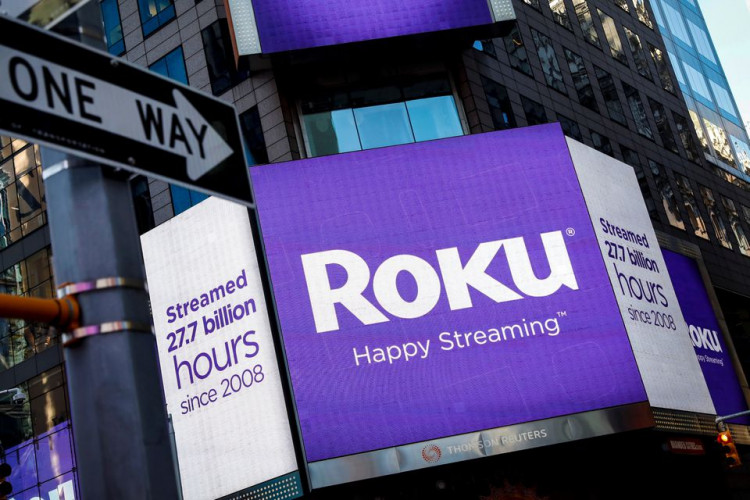Digital media player and video-streaming company Roku reported worse-than-expected fourth-quarter results Thursday, sending its share prices down by as much as 20% in extended trading.
For its fourth quarter, Roku reported adjusted earnings per share of 17 cents, higher than the 9 cents per share expected by Wall Street. Revenue grew by 33% to $865.3 million, slightly lower than the $894 million expected by analysts. Revenue growth for the quarter was slightly lower than the 51% growth during its third quarter and 81% growth during its second quarter.
Roku reported a 17% increase in its daily active accounts to 60.1 million for the quarter. This was higher than the 59.5 million active accounts expected by analysts.
The company's Platform division, which includes digital ad subscriptions and revenue sharing, as well as sales of branded buttons on remote controls, produced $703.6 million in revenue in the fourth quarter, up 49% but still below analysts' expectations. In the third quarter, platform revenue increased by 82%. The gross margin for the segment was 60.5%, down from 65% in the third quarter.
Roku forecasts that its revenue for the first quarter this year could reach $720 million, implying a 25% growth. Average analysts' estimates pegged the company's revenue for the current quarter to be around $748.5 million.
The company expects to generate adjusted earnings of around $55 million for the current quarter, below the $79.2 million expected by analysts. In its guidance for the entire year, the company expects revenue growth to be within the mid-30s percentage range. The forecast is within the expected 36% growth pegged by analysts.
Roku blamed its declining revenue growth on the ongoing supply shortage that has impacted the market for televisions throughout the country. Roku founder and CEO Anthony Wood said TV sales in the U.S. plunged below pre-pandemic levels. He added that its partners, which sell their television equipped with Roku's players, were several impacted during the last quarter.
The company's chief financial officer, Steve Louden, said they expect costs for their video players to remain elevated in the coming quarter. He added that they do not believe the situation will be permanent.
Following the release of its earnings report, Roku's stock price plunged to its lowest point since June 2020. Since the start of the year, Roku's stock price has dropped by around 37%. The company was able to see a spike in its stock price over its latest quarter after it secured an agreement with Google to keep the latter's YouTube and YouTube TV services.





